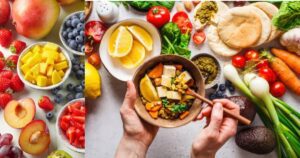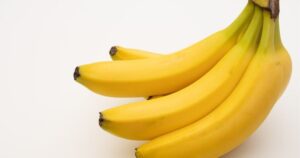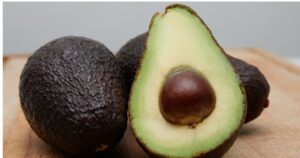Fruits That Are Rich in Potassium: A Complete Guide for a Healthy Lifestyle

If you’ve ever felt tired, experienced muscle cramps, or struggled to keep your blood pressure in check, you may not be getting enough potassium in your diet. Many Americans are aware of the importance of vitamins and minerals, but potassium often gets overlooked. This essential nutrient plays a critical role in heart health, muscle function, and overall well-being. Yet, despite its importance, confusion persists about which foods provide the most potassium and how to incorporate them into daily meals. That’s why we’ve put together this comprehensive guide on fruits that are rich in potassium. By the end of this article, you’ll understand why potassium matters, which fruits are top sources, and how to easily include them in your diet to support a healthier lifestyle. Let’s dive into practical tips and solutions that can make a real difference in your daily health.
Why Potassium is Essential for Your Health
Potassium is a key mineral that helps regulate fluid balance, nerve signals, and muscle contractions. Without sufficient potassium, you may notice fatigue, muscle weakness, or even irregular heartbeats. According to the CDC, maintaining proper potassium levels is linked to reduced risks of high blood pressure and stroke. Despite this, many adults in the USA consume far less potassium than recommended.
- Potassium supports heart and muscle function.
- Helps regulate blood pressure and fluid balance.
- Many Americans fall short of the recommended daily intake.
Daily Recommended Potassium Intake
For adults, the Mayo Clinic suggests a daily potassium intake of around 2,500–3,000 mg. However, most Americans consume only about half of this amount, primarily due to diets high in processed foods and low in fruits and vegetables.
- Adults should aim for 2,500–3,000 mg per day.
- Processed foods are typically low in potassium.
- Fruits and vegetables are natural, effective sources.
Top Fruits That Are Rich in Potassium

1. Bananas: The Classic Source
Bananas are widely recognized as a potassium powerhouse. One medium banana contains approximately 422 mg of potassium. They are also convenient for on-the-go snacking and can be easily added to smoothies, oatmeal, or cereal. According to WebMD, bananas may help reduce the risk of hypertension due to their potassium content.
- One medium banana provides ~422 mg potassium.
- Easy to eat on the go or in recipes.
- Helps support blood pressure regulation.
2. Avocados: Creamy and Nutrient-Dense
Avocados are not only delicious but also rich in potassium. A single avocado contains about 975 mg, nearly half the recommended daily intake. They provide heart-healthy fats and fiber, making them ideal for salads, toast, or smoothies. Harvard Health notes that potassium-rich foods like avocados are linked to better cardiovascular health [Harvard Health].
- One avocado provides ~975 mg potassium.
- Includes healthy fats and fiber.
- Supports heart and blood vessel health.
3. Oranges and Orange Juice
Oranges are another excellent source of potassium, offering about 237 mg per medium fruit. Freshly squeezed orange juice is also beneficial, though it should be consumed in moderation due to natural sugars. Potassium in oranges helps with fluid balance and muscle function.
- One medium orange contains ~237 mg potassium.
- Can be eaten whole or juiced.
- Supports hydration and muscle function.
4. Cantaloupe and Other Melons
Cantaloupe provides roughly 427 mg of potassium per cup. Melons are hydrating and low in calories, making them perfect for summer snacks. Including cantaloupe and honeydew in your diet can help increase your potassium intake while keeping meals refreshing.
- One cup of cantaloupe has ~427 mg potassium.
- Low-calorie, hydrating fruit.
- Great for snacks or breakfast bowls.
5. Apricots and Dried Apricots
Fresh apricots offer 91 mg of potassium each, while dried apricots are more concentrated, providing around 430 mg per half-cup. They make a convenient, portable snack and are excellent in cereals or yogurt. According to WebMD, potassium from fruits like apricots can help maintain healthy blood pressure levels.
- Fresh apricot: ~91 mg potassium each.
- Dried apricots: ~430 mg per half-cup.
- Easy to incorporate into meals or snacks.
Practical Tips to Include More Potassium-Rich Fruits in Your Diet
Mix Fruits into Breakfast
Start your day by adding bananas, cantaloupe, or berries to your cereal or oatmeal. Smoothies are another excellent option—blend bananas with orange juice or avocado for a potassium-rich breakfast.
- Add fruit slices to cereal, oatmeal, or yogurt.
- Blend fruits into smoothies for a quick nutrient boost.
- Start your day with a high-potassium meal.
Healthy Snacking Throughout the Day
Keep portable fruits like bananas, dried apricots, or apple slices handy. Pair them with nuts for a balanced snack that includes potassium, fiber, and protein.
- Choose fruits easy to carry and eat anywhere.
- Pair fruits with nuts for added nutrients.
- Snack regularly to meet daily potassium goals.
Incorporate Fruits into Lunch and Dinner
Add avocado slices to salads, orange segments to chicken dishes, or cantaloupe on the side. This approach ensures that you consume potassium throughout the day rather than all at once.
- Enhance salads and main dishes with potassium-rich fruits.
- Distribute potassium intake across meals.
- Combine fruits with proteins and vegetables for balanced nutrition.
Potential Problems of Low Potassium and How to Avoid Them
Common Signs of Potassium Deficiency
Potassium deficiency can lead to muscle cramps, weakness, fatigue, and irregular heart rhythms. The Mayo Clinic emphasizes that maintaining adequate potassium levels is vital for overall health.
- Muscle cramps and weakness.
- Fatigue and low energy.
- Potential irregular heart rhythms.
Simple Solutions to Prevent Deficiency
Incorporate at least 2–3 servings of potassium-rich fruits daily. Track your intake and balance it with vegetables, nuts, and legumes. Limiting processed foods will also help maintain proper potassium levels.
- Eat multiple servings of potassium-rich fruits daily.
- Combine fruits with other potassium sources like vegetables and legumes.
- Limit processed and low-potassium foods.
Consulting a Healthcare Professional
If you have kidney issues or are taking medications that affect potassium levels, consult your doctor before making significant dietary changes. According to the CDC, some medical conditions require careful monitoring of potassium intake.
- Seek medical advice if you have kidney disease or heart issues.
- Monitor potassium intake if on specific medications.
- Balance diet with professional guidance.
Frequently Asked Questions (FAQ)
Which fruits have the highest potassium content?
Answer: Bananas, avocados, oranges, cantaloupe, and dried apricots are some of the top fruits rich in potassium. Incorporating a variety ensures balanced intake.
Can potassium-rich fruits help lower blood pressure?
Answer: Yes. Potassium helps counteract sodium effects in the body, supporting healthy blood pressure levels. Including fruits like bananas, oranges, and avocados may be beneficial.
How much potassium should adults consume daily?
Answer: Adults typically need around 2,500–3,000 mg of potassium per day. Fruits, vegetables, legumes, and dairy are good sources to meet this requirement.
Are there risks in eating too many potassium-rich fruits?
Answer: For most healthy adults, eating fruits is safe. However, individuals with kidney disease or certain medications should consult their doctor, as excessive potassium can be harmful.
Can dried fruits provide the same potassium benefits as fresh fruits?
Answer: Yes, dried fruits like apricots are concentrated sources of potassium. However, monitor portion sizes due to higher sugar content.
Conclusion
- Potassium is essential for heart, muscle, and overall health.
- Fruits like bananas, avocados, oranges, cantaloupe, and apricots are top sources.
- Incorporate potassium-rich fruits throughout the day in meals and snacks.
- Monitor intake and consult a healthcare professional if you have medical conditions.
- Maintaining adequate potassium can support a healthier lifestyle and prevent deficiency-related issues.
Disclaimer
This article is for informational purposes only and is not a substitute for professional medical advice. Always consult your healthcare provider before making significant changes to your diet, especially if you have underlying health conditions or are taking medications.
About the Author
This article is written by the VitaGlowZenith Editorial Team. We provide easy-to-understand, evidence-based wellness tips to help you make better health and lifestyle choices.
